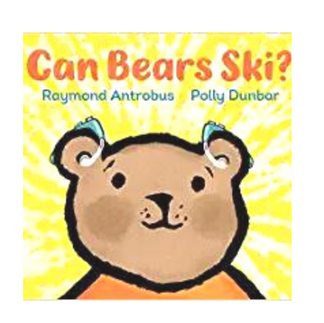Deafness in a Hearing World, Through the Lens of Raymond Antrobus
- Kathleen Marcath
- Jun 6, 2022
- 4 min read
Updated: Mar 24, 2023
I recently discovered Raymond Antrobus, a Deaf British poet and children's book author.
Antrobus published two poetry collections, The Perseverance (2018) and All the Names Given (2021), as well as a children's book entitled Can Bears Sky? (2020).

He has won a Ted Hughes Award, a Rathbones Folio Prize, a Somerset Maugham Award, and was shortlisted for the Griffin Poetry Prize.
His Deaf identity is an intricate part of his power as an author. In an interview, he said, "Sound is so powerful that it could either disempower me and my artwork, or it could empower me. I chose to be empowered."
Today, I want to introduce you to some of Antrobus's writings, and hopefully, you will be curious enough to pick up one (or more!) of his books.
Antrobus's poetry
What strikes me about Antrobus's work is his uncanny ability to draw us into the inner experience of a d/Deaf person, the experience of living silently in a hearing world. In his debut poetry collection, The Perseverance, Antrobus shares his meditations on communication, connection, identity, and language (spoken and signed).
Antrobus was born in London to a Jamaican father and a British mother. Although he was deaf, no one realized this for the first seven years of his life. His parents just thought that he had learning difficulties. In an interview with NPR, he opened up about this experience. He recalls that his parents first realized he had a hearing disability when they got a very loud phone that Raymond was the only one not to hear.
Although he went to a school for the deaf starting at age 11, Antrobus tried to pass as a hearing person after he left school and entered the workforce. This cost him a lot of jobs. So instead, he turned to poetry. This theme of trying to fit into the world of sound recurs throughout his poems. In a poem entitled "Dear Hearing World," he says:
I was pronouncing what I heard
but your judgment made all my syllables disappear,
your magic master trick hearing world — drowning out the quiet,
bursting all speech bubbles in my graphic childhood,
you are glad to benefit from audio supremacy

Here is an excerpt from a poem entitled "Samantha," the story of a Deaf Jamaican woman:
Some believe I took Samantha's voice at
the moment she fell on those steps in
her council block, that I snatched sounds
from Samantha's world like
a collector of voice boxes.
In Gaudi's Cathedral in Barcelona, Antrobus explores the idea of silence and sound and how they can bring us closer to God:
Even though I have not heard
the golden decibel of angels,
I have been living in a noiseless
palace where the doorbell is pulsating
light and I am able to answer.
I wouldn't dare evaluate these pieces in this article. I merely include them here so you can experience Antrobus's magic for yourself. I always think that the perspective of others is fascinating to explore, and Antrobus does such a fantastic job of expressing this in his work.
Antrobus's relationship with poetry dates back to his childhood. He recalls a teacher who encouraged him to write poetry when he was in school. He says he experienced a "kind of space where [he] could just be."
When his father passed away, Antrobus's relationship with poetry grew stronger. Many of the poems in The Perseverance are about his father. The title itself is also the name of a pub that his father used to go to. Here is an excerpt from a poem:
My Dad never called me deaf,
even when he saw the audiogram.
He'd say, you're limited,
so you can turn the TV up.
Looking back on his experience with writing poetry, Antrobus says that it has helped him come to terms with his identity as a deaf person. "Poetry was a way for me to just write what my truth was," he says.
I hope that these excerpts from The Perseverance have piqued your interest in Antrobus's poetry! But his body of work also includes some unexpected surprises. As I mentioned earlier, he is also the author of a children's book entitled Can Bears Ski?
Antrobus's children's book, Can Bears Ski?
In an interview, Antrobus says that this is the book he wishes he had as a child, growing up deaf. The book's protagonist experiences hearing loss. He hears disjointed bits of conversation and is unsure whether he hears everything right. The question in the title, "can bears ski?" actually means "can you hear me?"

Here's an excerpt:
Dad Bear talks a lot on our way to school.
I hear the crunch, crunch, crunch of the snow.
Dad Bear stops and looks directly at me.
"Your friend was saying hello.
Why did you ignore him?"
"I didn't." I didn't.
Then Dad Bear asks again, "Can bears ski?"
Is that really what he's asking me?
This is a fantastic book for children who are deaf or hard-of-hearing because it shows them that other kids experience the world as they do. They are not alone. But it is also a fantastic book for hearing children to see how their deaf peers experience the world. It's a great book to help us realize that while we inhabit the same planet, our experiences can be vastly different from those of our peers.
I invite you to discover this wonderful book with the YouTube video below:
I hope you will consider getting this book, for yourself, or as a present. Antrobus's work moves me deeply, and I hope it will move you also. I certainly look forward to many more moving and profound works from him, whatever form they might take.
Thank you, we hope you were inspired!
You may also enjoy:
Language First? Recorded video with Kimberly Sanzo shares "Why ASL is Important for Deaf Children. Learn how Language Frist was born and discover what Language First offers.
Every child has a gift to give
ASL Picture Books is helping children discover theirs.

American Sign Language is a beautiful and powerful language, an untapped resource with limitless potential.
Your feedback is appreciated.
.jpg)






Comments